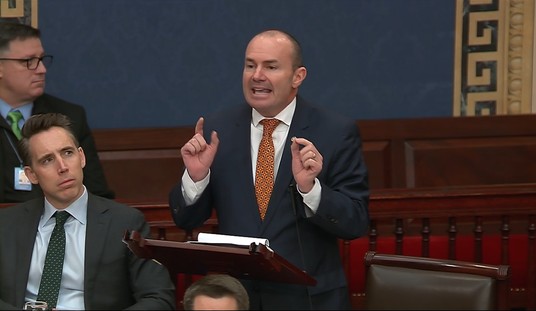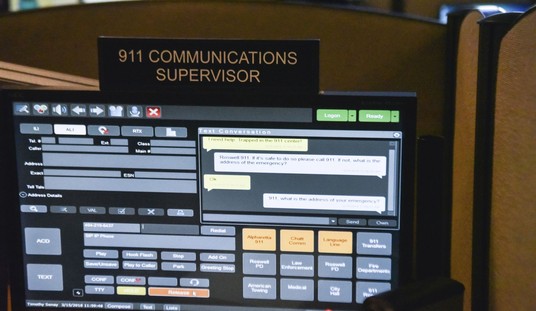Yesterday, John Solomon and Sara Carter at Circa (if this isn’t on your daily must-read list, you are missing it) posted a story that should have created a firestorm. Recently declassified FISA Court proceedings show that the FBI has routinely engaged in surveillance of Americans in violation of FISA and it has shared their data with people who did not have the need or even the clearance to see the information.
In his final congressional testimony before he was fired by President Trump this month, then-FBI Director James Comey unequivocally told lawmakers his agency used sensitive espionage data gathered about Americans without a warrant only when it was “lawfully collected, carefully overseen and checked.”
Once-top secret U.S. intelligence community memos reviewed by Circa tell a different story, citing instances of “disregard” for rules, inadequate training and “deficient” oversight and even one case of deliberately sharing spy data with a forbidden party.
For instance, a ruling declassified this month by the Foreign Intelligence Surveillance Court (FISA) chronicles nearly 10 pages listing hundreds of violations of the FBI’s privacy-protecting minimization rules that occurred on Comey’s watch.
The behavior the FBI admitted to a FISA judge just last month ranged from illegally sharing raw intelligence with unauthorized third parties to accessing intercepted attorney-client privileged communications without proper oversight the bureau promised was in place years ago.
The court also opined aloud that it fears the violations are more extensive than already disclosed.
“The Court is nonetheless concerned about the FBI’s apparent disregard of minimization rules and whether the FBI is engaging in similar disclosures of raw Section 702 information that have not been reported,” the April 2017 ruling declared.
You owe it to yourself to read the story and the declassified documents. They paint a picture of an FBI with a very cavalier attitude toward regulations governing how NSA material can be used and the Fourth Amendment in general. The FBI routinely made statements to the court that were contradicted by reports from its own IG and, most disturbingly, the court sort of shrugs and lets it go. Just a few snippets:
Illegal accessing of information
The FBI’s very first compliance report in 2009 declared it had not found any instances in which agents accessed NSA intercepts supposedly gathered overseas about an American who in fact was on U.S. soil.
But the IG said it reviewed the same data and easily found evidence that the FBI accessed NSA data gathered on a person who likely was in the United States, making it illegal to review without a warrant.
“We found several instances in which the FBI acquired communications on the same day that the NSA determined through analysis of intercepted communications that the person was in the United States,” the declassified report revealed.
Disregard of purpose of FISA
Amy Jeffress, the former top security adviser to former Attorney General Eric Holder, was appointed by the intelligence court in 2015 to give anindependent assessmentof the FBI’s record of compliance.
Jeffress concluded agents’ searches of NSA data now extend far beyond national security issues and thus were “overstepping” the constitutional protections designed to ensure the bureau isn’t violating Americans’ 4th Amendment protections against unlawful search and seizure.
Data sharing with entities not authorized to receive the data
The most serious involved the NSA searching for American data it was forbidden to search. But the FBI also was forced to admit its agents and analysts shared espionage data with prohibited third parties, ranging from a federal contractor to a private entity that did not have the legal right to see the intelligence.
The pattern of deception and overreach resulted in the usually timorous and compliant rubber stamp operation FISA court making this declaration:
Since 2011, NSA’s minimization procedures have prohibited use of U.S.-person identifiers to query the results of upstream Internet collection under Section 702. The October 26, 2016 Notice informed the Court that NSA analysts had been conducting such queries in violation of that prohibition, with much greater frequency than had previously been disclosed to the Court.”
“At the October 26, 2016 hearing, the Court ascribed the government’s failure to disclose those IG and OCO reviews at the October 4, 2016 hearing to an institutional ‘lack of candor’ on NSA’s part and emphasized that ‘this is a very serious Fourth Amendment issue.’
Essentially, what we are told is that there are no rules because we ultimately rely upon the integrity and good faith of the people administering the system to ensure the rules are broken. We’ve hired the fox to guard the hen house.
The most questionable part of FISA, Section 702, is up for reauthorization this fall. It needs a serious second look because right now the cure is looking much worse than the disease.














Join the conversation as a VIP Member